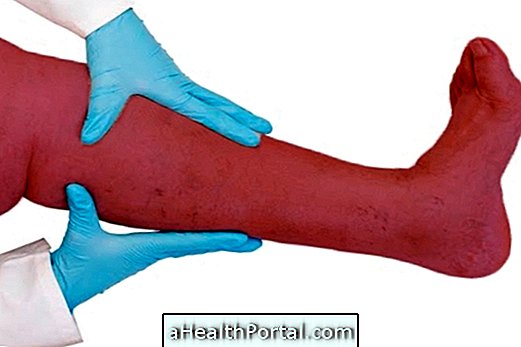Obesity that begins even in childhood can be caused by a rare genetic disease called leptin deficiency, a hormone that regulates the feeling of hunger and satiety. With the lack of this hormone, even if the person eats a lot, this information does not reach the brain, and it always remains hungry and so is always eating something, which ultimately favors overweight and obesity.
People who have this deficiency usually demonstrate their excess weight in childhood and can fight the scales for years until they discover the cause of the problem. These people need treatment that should be indicated by the pediatrician, when the disease is diagnosed up to the age of 18 or by the endocrinologist in adults.

Symptoms
People who have this genetic change are born with normal weight, but quickly become obese during the first few years of life because they never feel satiated, they continue to eat all the time. Thus, some signs that may indicate this change are:
- Eat large portions of food at a time;
- Difficulty staying longer than 4 hours without eating anything;
- High levels of insulin in the blood;
- Constant infections due to weakening of the immune system.
Congenital leptin deficiency is a genetic disease, so children with a history of obesity in the family who present these symptoms should be referred to the pediatrician to investigate the problem and begin treatment.
How to know if I have this disease
It is possible to diagnose this deficiency through the symptoms presented and through blood tests that identify the low levels or the complete absence of leptin in the body.
How is the treatment done?
The treatment of congenital leptin deficiency is done with the use of daily injections of this hormone, to restore what the body does not produce. As a result, the patient has decreased hunger and slimming, and also returns to adequate levels of insulin and normal growth.
The amount of hormone to be taken should be doctor-oriented and the patient and his or her family should be trained to give injections, which should be given just below the skin, as is done with insulin injections for diabetics.
As there is no specific treatment for this deficiency, the injection should be applied daily for a lifetime.
Although this medicine is essential for hunger control and food intake, you should learn to eat less food, eat healthy meals, and exercise regularly so that you can lose weight.
Watch what you can do to lose weight:

Risks and Complications of Leptin Deficiency
When untreated, low levels of leptin may cause complications linked to being overweight, such as:
- Absence of menstruation in women;
- Infertility;
- Osteoporosis, especially in women;
- Developmental delay during puberty;
- Type 2 diabetes.

It is important to remember that the earlier you start treatment, the lower the risk of complications due to obesity and the faster the patient will lose weight and lead a normal life.





















